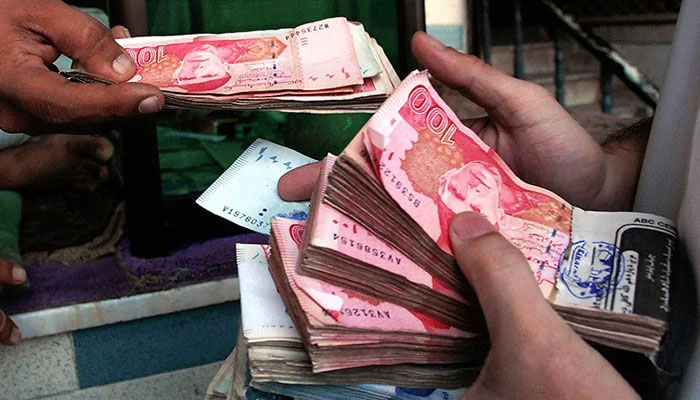How to fix corruption
LAHORE: Corruption contributes to instability and poverty and is a dominant factor that is driving the Pakistani state towards failure. The main reason for the country’s failure in its fight against corruption is a lack of political will.
The existence or absence of rule of law is one institutional factor. But the lack of accountability is a form of incentive that let bribery thrive. If corruption, for example, was solely the result of individual wrongdoing, then governments could raise the penalties to the point where the risk of being caught outweighs the reward. Both for the receiver and giver of the bribe.
The quality of government is important. In Pakistan it is greatly affected by levels of corruption. In good governance, equal treatment is applied to everyone, regardless of the group to which one belongs. Government actions and institutions that violate these norms of impartiality and ethical universalism are corrupt.
In a highly politicized atmosphere, individualized prosecutions like the one we are selectively awarding to power thieves will not produce real reform. Only structural changes can accomplish lasting change. A reason why the fight against corruption is so protracted is the absence of will to punish allies for the same sin under which non-allies are punished.
Governments operate on the taxes they collect. We should enact a fair tax policy. The fact that a large number of people are out of the tax net shows that taxation here is not equal and fair. When people do not pay taxes, it implies that they do not care about corruption (in fact tax evasion is a corrupt practice). Our planners must understand that fairness of taxes is important under which the same income from any sector is equally taxed.
In fairly taxed countries like Scandinavia, corruption is extremely low despite high taxes and high public spending. Appointments without merit also promote corruption. The state must establish a meritocratic system for hiring people in the civil service. In Pakistan most public-sector jobs are filled through personal connections. Competence comes with merit, and it has a strong effect. Finally, we should take the issue of gender equality seriously. Credible research has shown that the higher the proportion of women in the public sector, the lower the corruption.
Corruption is deeply corrosive and paves the way for incompetence. It undermines good governance and eats away at public trust. A strong structure of corporate governance is needed to ensure business organizations operate sustainably. A good understanding of moral philosophy is a critical part of doing business ethically. A company that behaves with integrity can play a crucial role in stabilizing areas of conflict.
The corporate lobbying of the government, for example, is perfectly legal in most countries (lobbyists openly operate in our country where the corporate lobby is not allowed). It gives private interests undue influence to bend the framing of laws and regulations in their favour.
It must be clear that corruption is the abuse of entrusted power for private gain. Thus, corruption includes both accepting bribe in return for certifying an unsafe building and demanding bribe as a condition for approving a fully compliant structure.
-
 Princess Beatrice, Eugenie Are ‘not Innocent’ In Epstein Drama
Princess Beatrice, Eugenie Are ‘not Innocent’ In Epstein Drama -
 Reese Witherspoon Goes 'boss' Mode On 'Legally Blonde' Prequel
Reese Witherspoon Goes 'boss' Mode On 'Legally Blonde' Prequel -
 Chris Hemsworth And Elsa Pataky Open Up About Raising Their Three Children In Australia
Chris Hemsworth And Elsa Pataky Open Up About Raising Their Three Children In Australia -
 Record Set Straight On King Charles’ Reason For Financially Supporting Andrew And Not Harry
Record Set Straight On King Charles’ Reason For Financially Supporting Andrew And Not Harry -
 Michael Douglas Breaks Silence On Jack Nicholson's Constant Teasing
Michael Douglas Breaks Silence On Jack Nicholson's Constant Teasing -
 How Prince Edward Was ‘bullied’ By Brother Andrew Mountbatten Windsor
How Prince Edward Was ‘bullied’ By Brother Andrew Mountbatten Windsor -
 'Kryptonite' Singer Brad Arnold Loses Battle With Cancer
'Kryptonite' Singer Brad Arnold Loses Battle With Cancer -
 Gabourey Sidibe Gets Candid About Balancing Motherhood And Career
Gabourey Sidibe Gets Candid About Balancing Motherhood And Career -
 Katherine Schwarzenegger Shares Sweet Detail From Early Romance Days With Chris Pratt
Katherine Schwarzenegger Shares Sweet Detail From Early Romance Days With Chris Pratt -
 Jennifer Hudson Gets Candid About Kelly Clarkson Calling It Day From Her Show
Jennifer Hudson Gets Candid About Kelly Clarkson Calling It Day From Her Show -
 Princess Diana, Sarah Ferguson Intense Rivalry Laid Bare
Princess Diana, Sarah Ferguson Intense Rivalry Laid Bare -
 Shamed Andrew Was With Jeffrey Epstein Night Of Virginia Giuffre Assault
Shamed Andrew Was With Jeffrey Epstein Night Of Virginia Giuffre Assault -
 Shamed Andrew’s Finances Predicted As King ‘will Not Leave Him Alone’
Shamed Andrew’s Finances Predicted As King ‘will Not Leave Him Alone’ -
 Expert Reveals Sarah Ferguson’s Tendencies After Reckless Behavior Over Eugenie ‘comes Home To Roost’
Expert Reveals Sarah Ferguson’s Tendencies After Reckless Behavior Over Eugenie ‘comes Home To Roost’ -
 Bad Bunny Faces Major Rumour About Personal Life Ahead Of Super Bowl Performance
Bad Bunny Faces Major Rumour About Personal Life Ahead Of Super Bowl Performance -
 Sarah Ferguson’s Links To Jeffrey Epstein Get More Entangled As Expert Talks Of A Testimony Call
Sarah Ferguson’s Links To Jeffrey Epstein Get More Entangled As Expert Talks Of A Testimony Call




